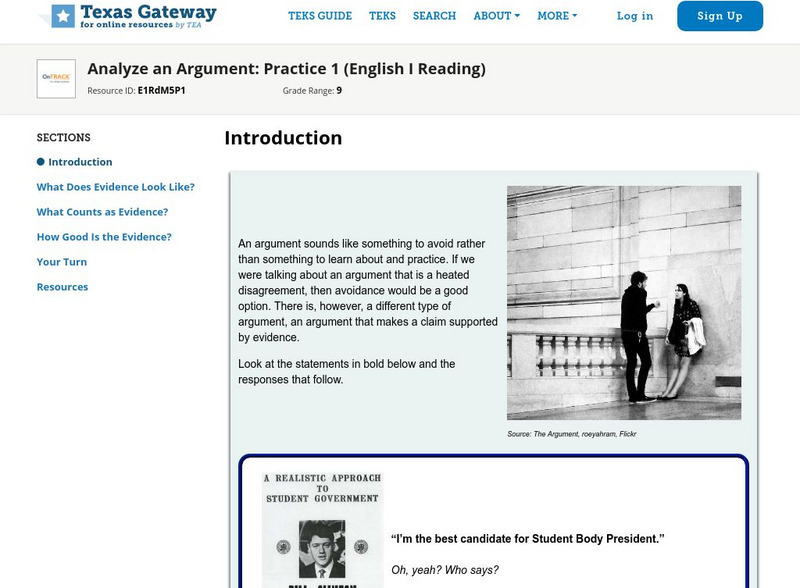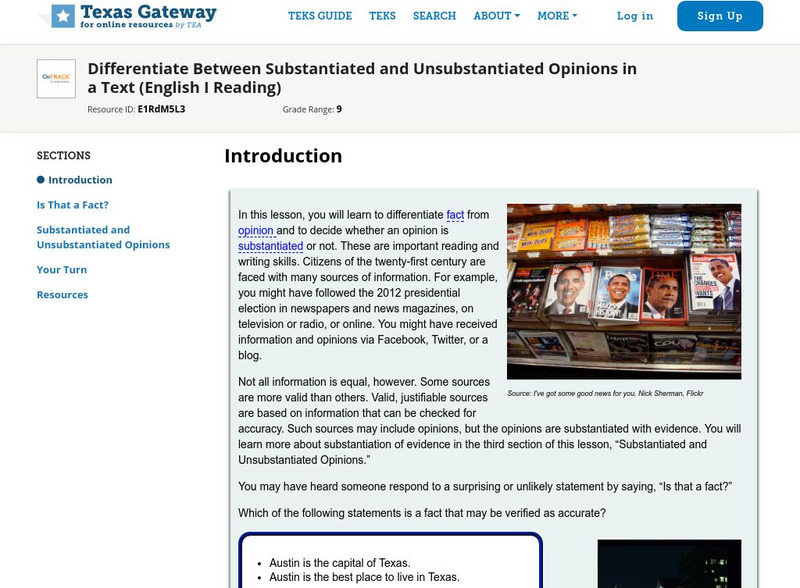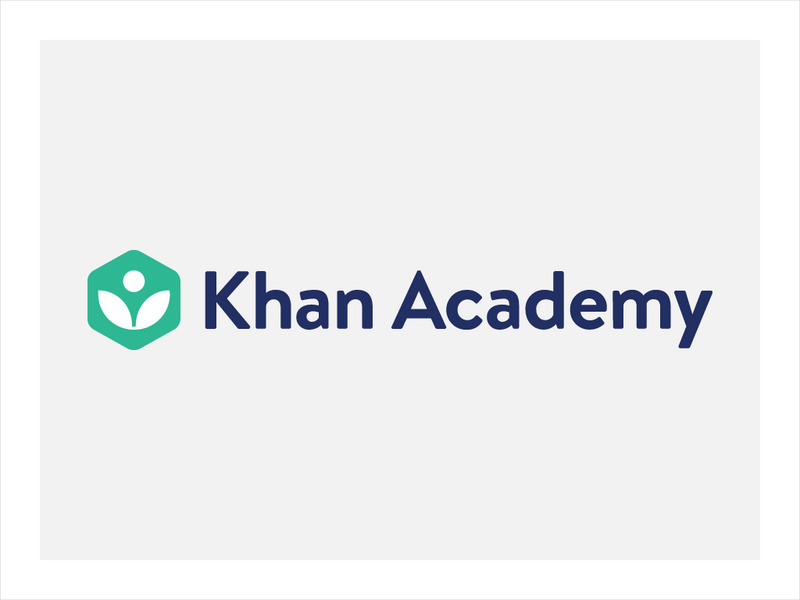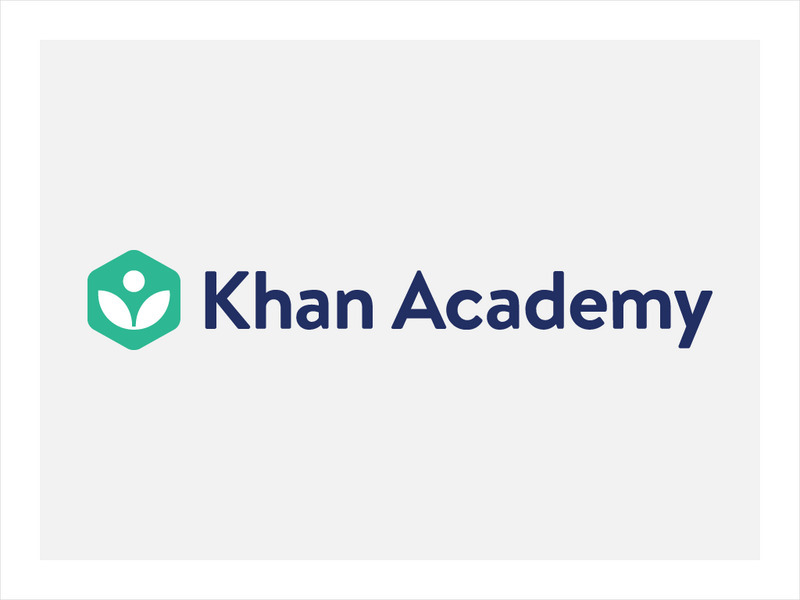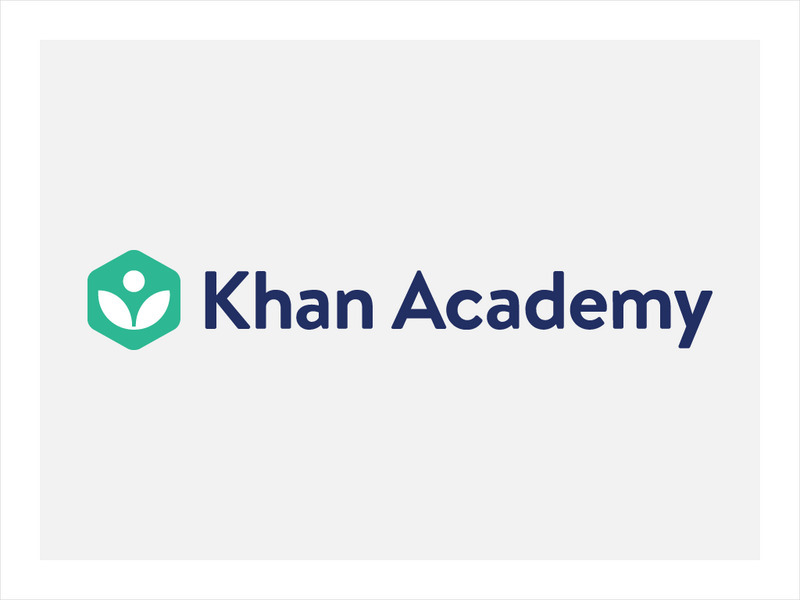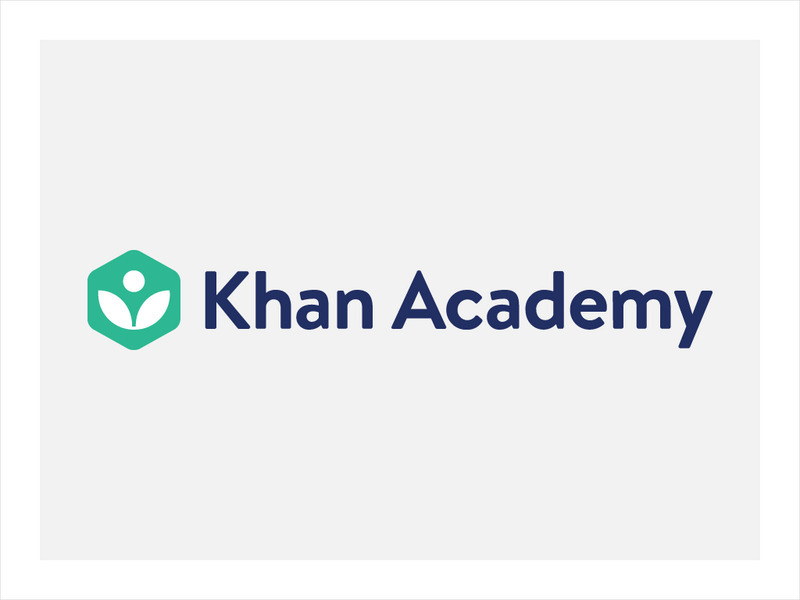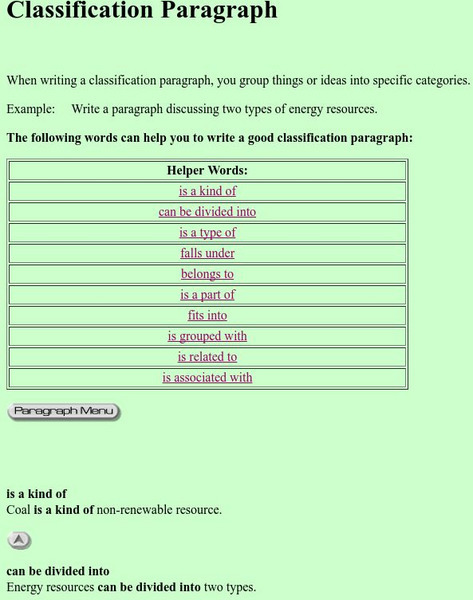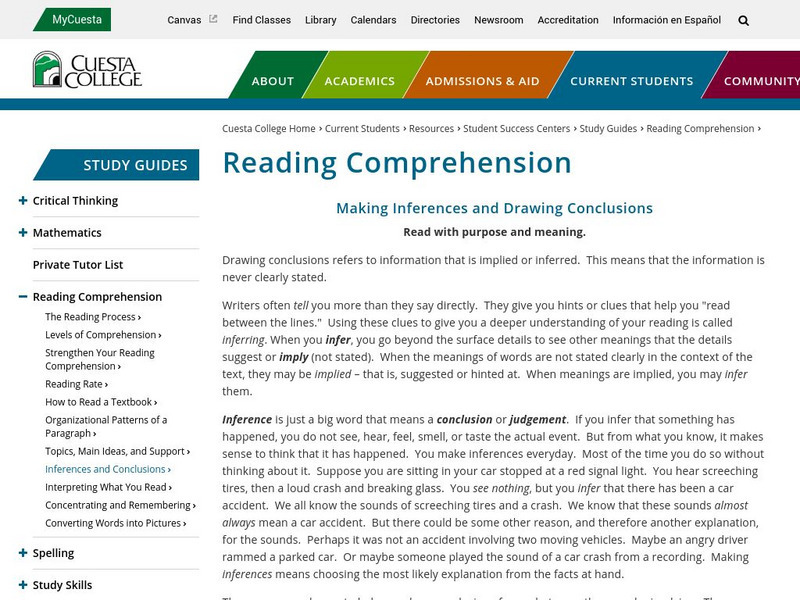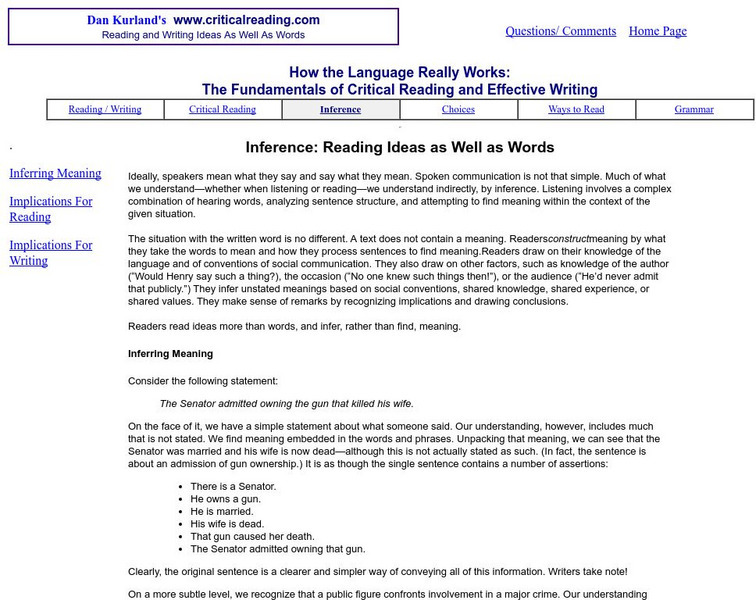Hi, what do you want to do?
Texas Education Agency
Texas Gateway: Analyze Literary Essays' Inclusion of Personal Opinions and Facts
In this lesson, you will learn how to identify and discuss the use of facts, personal examples, and ideas and how they are woven into a literary essay.
Texas Education Agency
Texas Gateway: Analyze an Argument: Practice 1 (English I Reading)
In this lesson, you are going to practice analyzing the evidence that supports or opposes an argument. You are also going to learn to analyze the quality, relevance, and credibility of the evidence so you can decide whether to accept the...
Texas Education Agency
Texas Gateway: Differentiate Between Substantiated and Unsubstantiated Opinions
[Accessible by TX Educators. Free Registration/Login Required] In this lesson, you will learn to differentiate fact from opinion and to decide whether an opinion is substantiated or not. These are important reading and writing skills.
Other
Csicop: Field Guide to Critical Thinking
This article, originally published in Skeptical Inquirer, outlines some of the key components of the scientific problem-solving process while addressing the many reasons for the popularity of paranormal beliefs in the U.S. (Published in...
Other
Tidewater Community College: Book or Article Review or Critique Guidelines
Many students are not sure what type of information to include in a book or article review. This site provides some general guidelines. It covers not only the type of content to be included but also the format.
CommonLit
Common Lit: Text Sets: Argument, Bias, and Persuasion
Collection of 43 Grade-Leveled texts (6-12)on the topic Argument, Bias, and Persuasion. Have students track arguments through texts as they examine logical reasoning, bias, and persuasive techniques such as emotional appeals, character...
Khan Academy
Khan Academy: Necessary Assumptions Learn More
Necessary assumption questions ask you to determine what has to be true - but was never explicitly stated - in order for an argument to work. Stated differently, if a necessary assumption were discovered to be false, the argument would...
Khan Academy
Khan Academy: Introduction to Arguments
The Logical Reasoning section of the LSAT assesses your ability to analyze arguments. This article introduces you to the components of an argument and how to recognize them. If this is new to you, it's a good idea to spend quite a bit of...
Khan Academy
Khan Academy: Types of Conclusions
You might find it helpful to categorize the kind of conclusion you're dealing with as you approach passages that contain arguments on the LSAT. Your success in analyzing arguments-passages with a conclusion and supporting evidence-starts...
Khan Academy
Khan Academy: If X, Then Y Sufficiency and Necessity
In this lesson, you will learn how to recognize arguments that contain conditional statements, and learn the difference between sufficient and necessary conditions.
Khan Academy
Khan Academy: Necessary Assumptions Quick Guide
A quick guide to approaching questions that ask you to find an assumption required by the argument. This question asks you to identify the claim that must be true or is required in order for the argument to work. In other words, there is...
Khan Academy
Khan Academy: Organizing Information Quick Guide
Organizing information questions ask you to understand and analyze how a passage works to make an argument. What is the progression of ideas in the passage? or What is the purpose of a specific paragraph?
Khan Academy
Khan Academy: Identify the Conclusion Quick Guide
The resource from Khan Academy provides practice questions for the LSAT. This section provides quick guide on "how to identify a conclusion in a line of reasoning" in the "Logical Reasoning" section.
Khan Academy
Khan Academy: Identify the Conclusion Learn More
The resource from Khan Academy provides practice questions for the LSAT. This section provides quick guide on "how to identify the main conclusion of an argument" in the "Logical Reasoning" section.
Khan Academy
Khan Academy: Identify the Conclusion Examples
The resource from Khan Academy provides practice questions for the LSAT. This section provides examples of the "Main Conclusion" question type of the "Logical Reasoning" section.
Louisiana Department of Education
Louisiana Doe: Curriculum Hub: Ela Guidebooks: Teenage Brain: Review Claims About Social Media
Review claims made in "Teens: This Is How Social Media Affects Your Brain."
Harvey Mudd College
Claremont Colleges: Writing an Argument
Brief handout describing different forms of argument for writing.
ACT360 Media
Writing Den: Classification Paragraphs
These tips and phrases can help you create a classification paragraph.
Other
Ed u.com: Three Fundamentals of Selling Your Message
This site is provided for by Ed-U.com. Based on the Greek ideas of ethos, logos, and pathos the writer addresses how to adequately persuade an audience.
Other
Cuesta College: Reading Comprehension Guide: Inferences and Conclusions
Explanations and examples of inferences and conclusions in reading and in understanding context clues to define unknown vocabulary.
Other
Daniel J. Kurland: Critical Reading: Inference: Reading Ideas as Well as Words
This college instructor offers his insights into critical reading and how to develop skills to interpret as well as comprehend the written word. RL.9-10.1, RL.11-12.1, RI.9-10.1 textual evidence and inference.
TES Global
Blendspace: Ethos, Logos, Pathos
A learning module with eight links to images, videos, charts, and assessments about ethos, logos, and pathos.
ClassFlow
Class Flow: Becoming an Effective Listener
[Free Registration/Login Required] This flipchart focuses on the traits of an effective listener and the identification of popular logical fallacies and propaganda techniques. In addition, there is an Activote at the end to check student...
ClassFlow
Class Flow: Fact and Opinion
[Free Registration/Login Required] Designed for grade 6, this flipchart covers the differences between fact and opinion. Students will analyze statements to determine if they are a fact or if they are an opinion.






